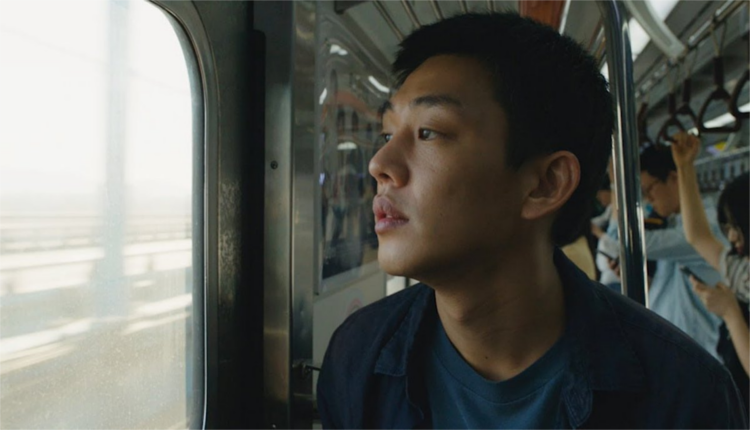Film Review | Burning – Hitchcock Would Be Proud
When cinephiles argue the straightforward narratives and clear heroes and villains of Hollywood movies are inferior to international cinema, films like Burning are what they are talking about.
South Korea’s pick for the Best Foreign Language Film at this year’s Oscars, Yoo Ah-in stars as Jong-su, a struggling writer forced to return to his single working-class father’s farm after his dad finds himself in trouble with the authorities. One day, he meets old neighbour Hae-mi (Jeon Jong-seo). Both lonely, the two begin to spend time with each other. Eventually, he sleeps with her on the eve of her holiday to Africa.
However, when she returns home, Hae-mi is now dating the wealthy and mysterious Ben (The Walking Dead’s Steven Yeun). Still wishing to be friends with Jong-su, the trio begin to hang out. While dealing with his father’s messy affairs and his own feelings for Hae-mi, Jong-su begins to wonder whether his romantic rival is hiding something sinister.
Nearly two and a half hours long, Burning is a film of two halves. The first is a stunningly realised social drama. Eschewing any form of expository dialogue throughout, the film paints a vivid picture of a South Korea split in two. One half is centred around the wealthy like Ben living lives of leisure – spending afternoons in coffee shops, frequenting lavish restaurants and bopping to K-pop bangers. The other revolves around those like Jong-su and Hae-mi struggling to support themselves, coming from the increasingly dilapidated rural area of Paju to make a life in the city of Seoul.
Class tension runs through the film in fascinating ways with the two central male characters not just opposing figures in a love triangle. Jong-su mentions his favourite writer is William Faulkner, an author renowned for tales focused on the disenfranchised (Faulkner was also a major influence on Haruki Murakami’s short story Barn Burning on which the film is based). Speaking about him, Jong-su says: “When I read his work, it’s like I’m reading my story.” He also compares Ben’s life to that of Jay Gatsby, F Scott Fitzgerald’s most famous creation – a millionaire with the world at his feet.
Co-writer and director Lee Chang-dong (Poetry, Secret Sunshine) for the most part holds the camera very close to Jong-su, symbolising how boxed in he is. He lacks the freedom of Ben, who we always see from afar, deep within an expansive frame – the whole world his oyster.
The performances reinforce this with Yoo Ah-in’s central character’s expression permanently looking either deep in thought or anxious. Meanwhile, Yeun throughout the entire film projects a relaxed confidence, with his continuous happy grin feeling positively condescending to viewers, given what we know about his girlfriend and Jong-su’s lives. Rounding out the main trio is Jeon Jong-seo whose Hae-mi fluctuates between both states, a tragic figure who believes she may have finally escaped her dreary life by dating Ben.

While this almost Ken Loach-esque social critique is at play, the movie subtly becomes more dreamlike and strange. Jong-su receives mysterious calls with just silence on the other end of the line. The score by composer Mowg (I Saw the Devil) begins to sound less like it’s evoking Jong-su’s rambling existence, growing more jazz-inflected – feeling nocturnal and ethereal. Passages of dialogue which previously felt natural – like Hae-mi reflecting on a near death experience abroad: “Dying is too scary. I want to just vanish like I never existed” – reappear later in the movie out of other characters’ mouths, like a creepy chorus. And following a woozy twilight set-scene where our main trio smoke pot, the movie evolves into a different beast.
Like an Asghar Farhadi film, Burning’s time spent establishing its characters and authentic neo-realist world pays off dividends when the movie mutates into a Hitchcockian thriller (complete with subtle nods to Psycho as well as the more tonally similar Vertigo). This is not just on account of viewers believing in what is happening, it is because what transpires is an exaggerated extension of the issues the film is wrestling with in its opening sections. And while it feels strange to call what happens in Burning fun per se, there is a real joy upon discovering that every detail vital to its second act is signposted so well in its first – often a seemingly trivial element viewers have already shrugged away unaware of its significance.
Without spoiling, the film amps up the tension and anxiety into a thrilling, disturbing denouement where the metaphorical kerosene that has been slowly spilling throughout the film finally ignites. While in a typical American movie, it would be the classic hero moment – part of its power in Burning is how Chang-dong chooses to depict it – a morally grey action, committed on an unproven hunch and shot in a stripped-back realist manner, emphasising the violence.
Ben describing the thrill he gets from his strange hobby states: “I feel a bass that rings to the very bones.” Burning will have cinephiles feeling the same way.

